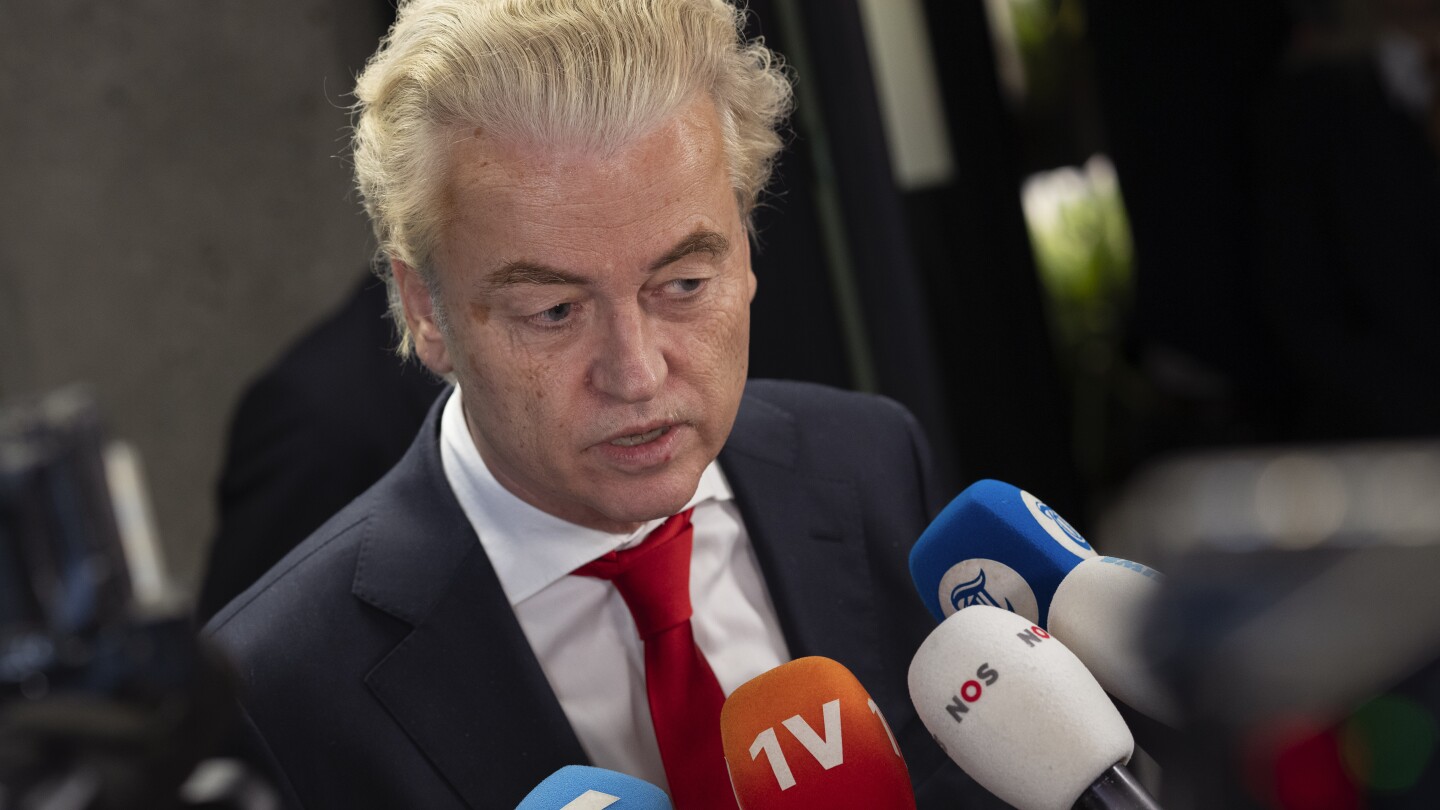THE HAGUE, Netherlands (AP) — Dutch election winner Geert Wilders tapped a former minister from the center-left Labor Party to investigate possible coalitions Tuesday, a day after the far-right leader’s first choice quit amid fraud allegations.
Ahead of a meeting that confirmed the appointment of Ronald Plasterk as “scout” to hold talks with political leaders about possible coalitions, Wilders also said on social media that his Party for Freedom, or PVV, known for its anti-Islam, anti-migration platform, “is for everyone.”
“The PVV is a broad popular party. The largest in the Netherlands. 2.4 million people voted for us,” Wilders wrote on X, formerly known as Twitter.
He said his party represented people of all levels of education as well as “native” Dutch citizens and immigrants, “workers, retirees, young people and the elderly. From the city, the countryside. The PVV is for everyone.”
The president of the lower house of the Dutch parliament, Vera Bergkamp, confirmed that a large majority of party leaders had approved Plasterk as the new scout, saying he has “broad political support.”
Wilders called Plasterk a “creative spirit” with political experience but who is also distanced from the current political scene.
Responding to Wilders’ election victory, Plasterk wrote in a newspaper column over the weekend that it was “very healthy for a democracy that there is sometimes a changing of the guard.”
He added that the center-right People’s Party for Freedom and Democracy, or VVD, whose new leader has said the party will not join the next coalition, should sit down for talks with Wilders’ PVV and two other political winners — the New Social Contract and Farmer Citizen Movement — to discuss a possible four-party government.
The VVD has led the last four coalitions and is the party of outgoing Prime Minister Mark Rutte, but lost 10 of its seats in the lower house of parliament at the Nov. 22 election.
Talks between Plasterk and party leaders will begin almost immediately. He is expected to present a report to newly-elected lawmakers early next month for a debate set to be on Dec. 7.
That will likely usher in the next phase of the coalition formation process when potential partners meet to discuss whether they can agree on a package of policies for the coming four-year parliamentary term.

